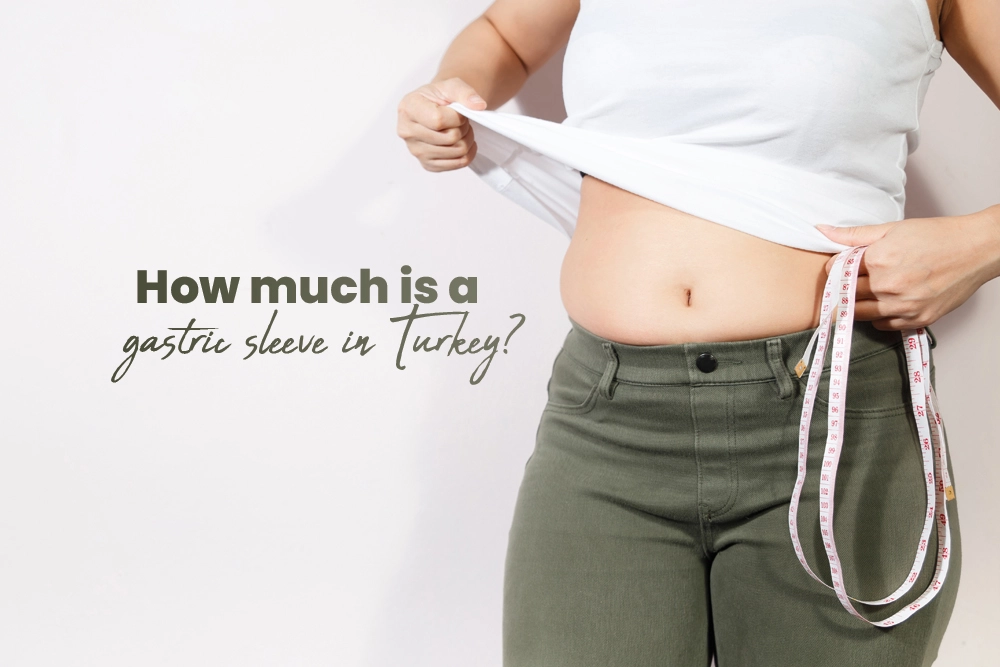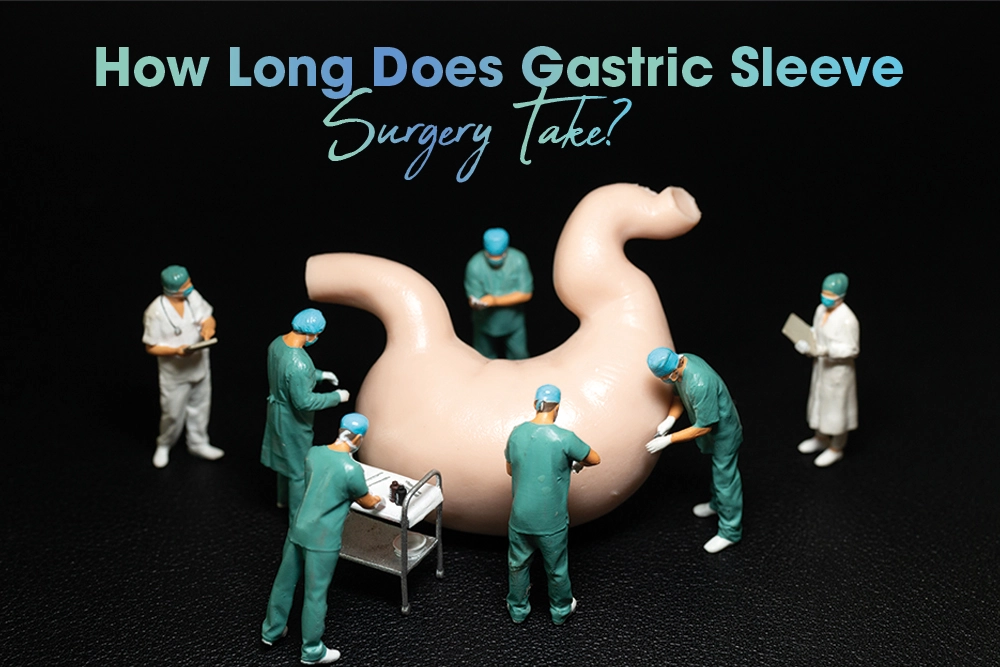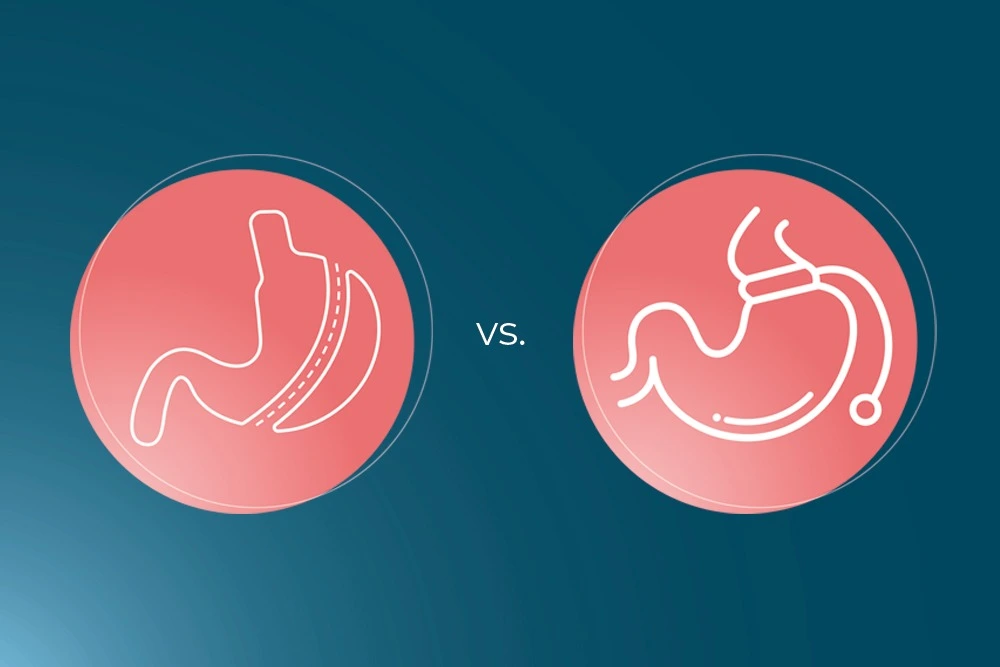Gastric sleeve surgery, or vertical sleeve gastrectomy, is a transformative weight loss procedure that has gained popularity due to its effectiveness in helping patients achieve significant weight loss and improve overall health. If you’re considering this surgery, particularly in Turkey, known for its high-quality medical facilities and competitive costs, it’s crucial to understand the dietary guidelines that will support your recovery and weight loss journey. This comprehensive gastric sleeve dietary guide will equip you with the knowledge you need for success.
What is Gastric Sleeve Surgery?
Before delving into the dietary guidelines, it’s important to understand what gastric sleeve surgery entails. The procedure involves the removal of a large portion of the stomach, creating a tube-like structure or “sleeve.” This reduces the stomach’s capacity, limiting the amount of food you can consume and significantly impacting hunger hormones, leading to a reduced appetite.
Turkey has emerged as a top destination for gastric sleeve surgeries due to its advanced healthcare infrastructure and experienced surgeons. Patients often experience rapid weight loss within the first year following surgery, making it a popular choice among those looking to improve their health.
How to Do a Gastric Sleeve Diet
Following gastric sleeve surgery, dietary changes are essential for a successful recovery and ongoing weight loss. The diet can generally be broken down into several phases:
1. Pre-Operative Diet
In the weeks leading up to your surgery, your healthcare provider may recommend a pre-operative diet. This phase aims to:
- Reduce Liver SizeBy minimizing fat around the liver, known as sleeve gastrectomy, the surgery becomes easier and safer.
- Improve Surgical Outcomes: Following a balanced diet and regular exercise can significantly improve surgical outcomes for gastric sleeve patients, especially in managing their body mass index.: A low-calorie diet rich in protein can lead to better results during and after surgery.
Typical components of a pre-operative diet may include:
- High-protein shakes
- Clear liquids
- Low-calorie vegetables
2. Post-Operative Liquid Diet
For the first week after surgery, you will follow a strict liquid diet. This phase is crucial for healing and involves consuming:
- Protein ShakesEssential for meeting protein needs without overloading your new stomach, which is a key benefit of gastric sleeve surgery.
- Clear Broths: These provide hydration and some nutrients.
- Sugar-Free Liquids: Staying hydrated is key, but avoid sugary beverages that can lead to complications.
3. Transition to Soft Foods
After the first week, you will gradually introduce soft foods into your diet to ease the transition after surgery involves changes in your eating habits. This phase usually lasts for two to four weeks and may include:
- Mashed Potatoes: Smooth and easy to digest.
- Yogurt: Offers probiotics and is gentle on the stomach.
- Pureed Vegetables: Packed with nutrients while being easy to consume, these foods can help reduce the feeling of hunger.
4. Solid Foods
Around the fourth week post-surgery, you can begin to incorporate solid foods. Focus on:
- Lean Proteins: Chicken, turkey, fish, and tofu are excellent sources of protein that can help you feel full.
- Fruits and Vegetables: Fresh and non-starchy options are ideal.
- Whole Grains: Small portions of oatmeal and whole-grain bread can be included.
This phase requires you to chew food thoroughly and take small bites to avoid discomfort, which can be particularly important after gastric bypass or gastric sleeve surgery.
5. Long-Term Dietary Changes
After a few months, the goal is to maintain a healthy diet and exercise routine that supports your long-term weight loss and helps prevent type 2 diabetes. Consider the following:
- Low Sugar and Fat: Avoid high-calorie, high-fat foods that can sabotage your weight loss efforts.
- High Protein: Foods high in protein can help you continue to eat satisfying meals while managing your weight.: Continue prioritizing protein-rich foods to support muscle maintenance and recovery.
- Regular Hydration is important, especially for candidates for gastric sleeve surgery.: Drinking plenty of water throughout the day is vital for overall health.
What Should I Eat on the Gastric Sleeve Diet?
A balanced diet is crucial for post-gastric sleeve patients to ensure recovery and long-term success, particularly focusing on the amount of weight lost. Here are some recommendations on what to eat:
Recommended Foods:
- Lean Proteins: Chicken, turkey, fish, eggs, beans, and low-fat dairy products are essential for muscle repair and satiety, especially in the months after surgery.
- Fruits and Vegetables: Aim for a variety of colors to maximize your nutrient intake. Focus on low-sugar fruits like berries and non-starchy vegetables like spinach and broccoli to support your recovery after gastric sleeve in Turkey, helping you avoid excess weight within your diet.
- Healthy Fats: Include small amounts of healthy fats such as avocados, nuts, and olive oil to support overall health.
- Whole Grains: Foods like quinoa, brown rice, and whole-grain pasta should be consumed in moderation as they provide essential fiber and energy.
- Hydration: Drink plenty of water, herbal teas, and other sugar-free beverages to stay hydrated.
Example Meal Plan
- Breakfast: A protein shake with spinach and a banana.
- Lunch: Grilled chicken breast with steamed broccoli.
- Snack: Greek yogurt with a sprinkle of nuts.
- Dinner: Baked salmon with quinoa and asparagus.
- Hydration: Aim for at least 64 ounces of water throughout the day.
Which Foods Are Harmful in the Gastric Sleeve Diet?
While many foods are beneficial, some can hinder your recovery and weight loss journey, particularly if they lead to excess weight gain. Avoid the following:
- Sugary Foods and Drinks: These can lead to dumping syndrome, characterized by nausea and discomfort.
- High-Fat Foods: Fried foods, fatty cuts of meat, and high-calorie snacks can slow digestion and contribute to weight gain.
- Processed Foods: Foods high in additives, preservatives, and sugars can disrupt your weight loss efforts and lead to excess weight within your recovery period.
- Starchy Foods: Items like white bread, rice, and pasta can be difficult to digest and may lead to weight regain if consumed in excess.
Understanding dietary restrictions post-surgery is vital for your success, especially in a comprehensive gastric sleeve program offered in Turkey, which can help manage your body mass index.
How Long Does the Gastric Sleeve Diet Last?
The gastric sleeve diet typically evolves over several months, focusing on specific dietary changes.
- Liquid Diet: Lasts for the first week post-surgery.
- Soft Foods: Introduced around the second week and typically lasts until the end of the first month.
- Solid Foods: Usually starts around four weeks post-surgery and continues indefinitely.
The transition to solid foods is an essential step, and adhering to these phases ensures that your stomach heals properly while you begin to experience significant weight loss.
Where Is the Most Appropriate Gastric Sleeve Treatment Performed?
Turkey has emerged as a leading destination for weight loss surgery, including gastric sleeve procedures. The country offers state-of-the-art hospitals and highly qualified surgeons specializing in bariatric surgeries.
Choosing the Best Hospital in Turkey
When considering gastric sleeve surgery in Turkey, it’s important to choose the best hospital in Istanbul that meets your needs. Factors to consider include:
- Accreditation: Look for hospitals accredited by international bodies such as JCI (Joint Commission International) to ensure high standards of care.
- Surgeon Experience: Ensure that your surgeon has extensive experience with gastric sleeve surgeries in Istanbul and a proven track record of successful outcomes.
- Comprehensive Packages: Many clinics offer gastric sleeve turkey packages that include consultations, the surgery itself, and post-operative care, making the process more manageable and cost-effective.
- Patient Reviews: Research patient testimonials to gauge the quality of care and patient satisfaction. Online forums and social media groups can provide valuable insights.
- Follow-Up Care: Check if the hospital offers robust post-operative support, including dietary guidance, exercise programs, and counseling.
Cost of Gastric Sleeve Surgery in Turkey
The cost of gastric sleeve surgery in Turkey is one of its major attractions. Compared to countries like the U.S. or Canada, the cost of gastric sleeve surgery in Turkey can be significantly lower, often ranging from $3,000 to $7,000, depending on the hospital and the specifics of your treatment package.
What’s Included in the Cost?
When evaluating the cost, consider the following components:
- Surgery FeesThis includes the surgeon’s fee, anesthesia, and the cost in Turkey for the use of the operating room.
- Pre-Operative TestingBlood tests, imaging, and consultations with surgeons in Turkey prior to surgery may also be included.
- Post-Operative Care: It’s essential to consult a dietitian for personalized guidance during your post-operative care.: Follow-up appointments and nutritional counseling are crucial for long-term success and may be included in the package.
Comparing Costs: Turkey vs. Other Countries
When comparing the cost of gastric sleeve surgery in Turkey to other countries, you will find that Turkey often offers a more affordable option without compromising quality. Many patients experience the same level of care and expertise as they would in Western countries, making Turkey a prime destination for weight loss surgery.
Side Effects of Gastric Sleeve Surgery
While gastric sleeve surgery can lead to significant weight loss, it’s important to be aware of potential side effects, including the feeling of hunger that may arise as your stomach adjusts.
- Nausea and Vomiting: Common in the early stages post-surgery, especially if food is not chewed thoroughly.
- Acid RefluxSome patients may experience increased acid reflux, which can often be managed with medication, especially after undergoing gastric sleeve in Turkey.
- Dumping Syndrome: This condition occurs when food moves too quickly through the stomach into the intestine, leading to nausea and discomfort, particularly after consuming sugary foods.
- Nutritional Deficiencies: Due to reduced food intake, some patients may experience deficiencies in vitamins and minerals. Regular monitoring and supplementation may be necessary.
Understanding these side effects can help you prepare and manage any pain and discomfort that arise during your recovery.
Follow us on Social Media
internationalplusofficial
internationalplus
internationalplusdental
International Plus was established from scratch in 2010 with the sole purpose of providing a world class center for plastic and cosmetic surgery by SAMİLSAN SAĞLIK HİZMETLERİ TURİZM DANIŞMANLIK TİCARET LİMİTED ŞİRKETİ International Plus has developed a worldwide reputation for its unique treatments and techniques. With over 10 years of experience, our talented medical experts are among the best in their respective fields. You are our priority. We are convinced that good communication between you and your surgeon is essential when planning your treatments. We offer realistic advice and the most suitable treatments for you.




